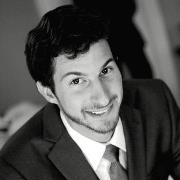Societal structure is based on our individual need to feel special. We want to feel included because of our uniqueness, not excluded. In our historical struggles for power and dominance over others, we are merely looking for an emotional assurance that we matter, that our existence has meaning and that we can exert control over our otherwise chaotic and harsh environment, societal or natural.
Those who do not intrinsically feel special or a strong sense of self-worth often look to others who appear to be special in some way, hoping that perhaps their inclusion in that group will subsequently make them special too. In most of these situations, however, those who appear to be important or powerful tend to not actually feel confident deep within; rather, they’ve figured out how to “play the system” and have built their entire lives on that premise. But such a foundation is shaky, for its building blocks are solely based on the perception of others. One wrong move is all it takes for everything to come crashing down.
Of course, this may seem a no-brainer, but the reality is that the feeling of self-worth comes from within, even though it has been so deeply routed in our biology the need to look to others for support and reassurance. But remember, that societal need was formed mostly from our need to protect ourselves from a harsh environment, one that no longer exists because of what society has built over time. Indeed, the threat of bears is not the main concern it once might have been. For many of us who live in a first world, so much of our fundamental physiological and safety needs are taken care of with excess that we are left almost bored and unsure what else to do with our time.
Happy dogs, cats or even human babies – given they are well nourished and kept safe – will do nothing other than play with one another. This is the fundamental love that comes from our communal adaptation; it is the biological change we have consequently made, allowing us to empathize with others and care for them. This is what it really means to love.
Why then, with all our basic needs taken care of, do we not just lay around and love one another? Is it our supposed intrinsic interest in domination and power? Indeed, history will show that all fearsome, powerful leaders of the past were, at the core, quite fearful of life, of death, of the Gods, of uncertainty. And yet, everyone has died, as we do. No one, no matter how powerful, lives forever. But they can change the way people behave, and we have been left so many lasting legacies that are rarely questioned or challenged. A deeper study of history evinces why things became as they are, and understanding of that narrative enables us to look at our situations with much more awareness and to question whether or not things need to be as they are now.
When we do look deeper, I believe we find that much of societal norms are in fact not the reality, but rather the culmination of thousands of years of the wrong people being in charge (wrong meaning fearful and not loving). And hence, when many complain that “life is complex” or that things are “a gray area” I have to disagree, for the reality is that while life in society is complex and life in society is a gray area because of all our collective fears over time, life in the universe is actually quite simple: to connect with yourself everything around you, to be included in anything and everything, to love and be loved. We have this ability within each of us, and how we love… that’s what makes us special.


